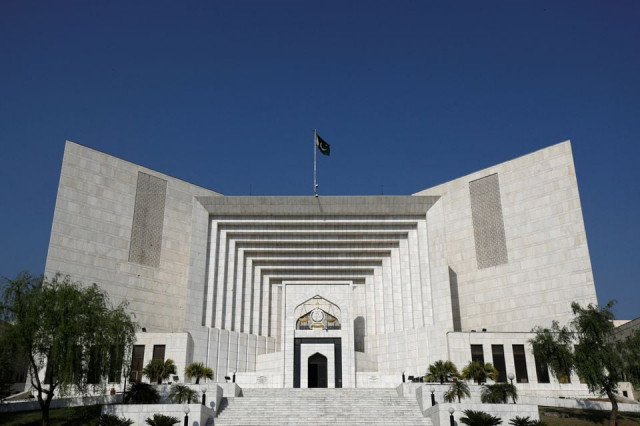Amid SC freeze, bill clipping CJ’s power becomes law
Move comes despite SC orders to halt the bill, and President Alvi returning it unsigned twice

The Supreme Court (Practice and Procedure) Act 2023, which sought to reduce the chief justice of Pakistan’s powers to take suo motu action and constitute benches, became law on Friday, despite the top court’s orders to stop its enforcement.
The National Assembly’s official Twitter account made the announcement. “Supreme Court (Practice and Procedure) Act, 2023 of the Majlis-e-Shoora (Parliament) is deemed to have been assented by the president w.e.f., 21 April 2023, under Clause (2) of Article 75 of the Constitution”.
Supreme Court (Practice and Procedure) Act, 2023 of the Majlis-e-Shoora (Parliament) is deemed to have been assented by the President W.e.f 21 April 2023, under Clause (2) of the Article 75 of the Constitution of Islamic Republic of Pakistan. It is hereby published for general… pic.twitter.com/FIpBmJsALs
— National Assembly of 🇵🇰 (@NAofPakistan) April 21, 2023
On completion of all the stages of the bill’s approval, the NA Secretariat issued a formal notification and sent a gazette notification to the Printing Corporation.
It is pertinent to note that President Dr Arif Alvi had returned the bill unsigned to parliament, twice.
The apex court itself “pre-emptively” stopped the enforcement of a bill that sought to clip the powers of the chief justice to initiate suo motu proceedings or form benches.
The court ruled that whether the bill received the president’s assent or it was deemed to have been given, "the act that comes into being shall not have, take or be given any effect (and) not be acted upon in any manner”.
Through the Act, the federal government limited the CJP’s powers to take suo motu notice as well as powers to constitute benches on his own in the aftermath of the Supreme Court’s decision to order elections in Punjab and Khyber-Pakhtunkhwa within 90 days of their dissolution, among other such decisions.
The federal cabinet amended the suo motu powers of the CJP, saying that the top judge of the country can’t automatically initiate suo motu proceedings and proposed that three judges of the Supreme Court would decide if the court should initiate suo motu proceedings in a particular matter.
Section 2 (constitution of benches) of the law states that “every cause, appeal or matter before the Supreme Court shall be heard and disposed of by a bench constituted by the committee comprising the chief justice of Pakistan and two senior-most judges, in order of seniority.” It adds that the “decisions of the committee shall be by majority.”
Section 3 of the proposed law proposes that any matter invoking the exercise of original jurisdiction under clause (3) of Article 184 (original jurisdiction by the Supreme Court) of the Constitution shall be first placed before the committee constituted under section 2 for examination.
It adds that if the committee is of the view that a question of public importance with reference to the enforcement of any of the fundamental rights conferred by Chapter I of Part II of the Constitution is involved, it shall constitute a bench comprising not less than three judges of the Supreme Court which may also include the members of the committee, for adjudication of the matter.



















COMMENTS
Comments are moderated and generally will be posted if they are on-topic and not abusive.
For more information, please see our Comments FAQ